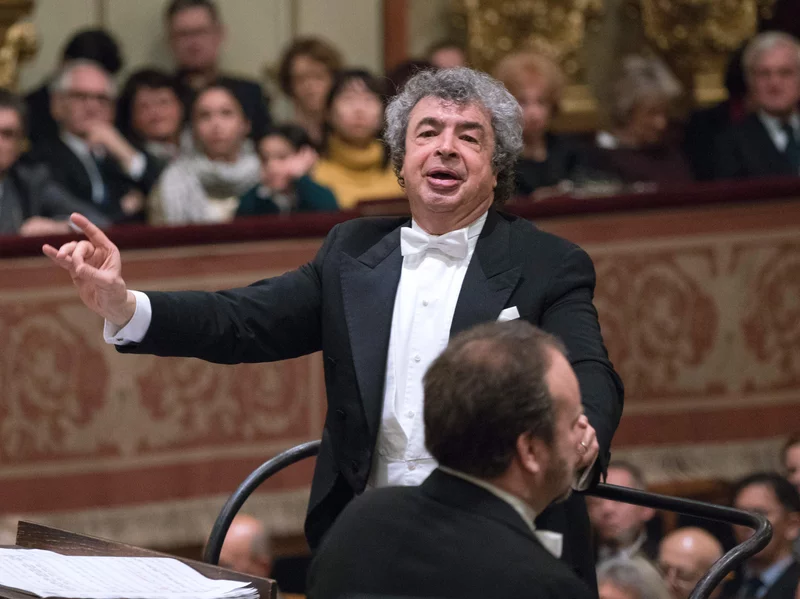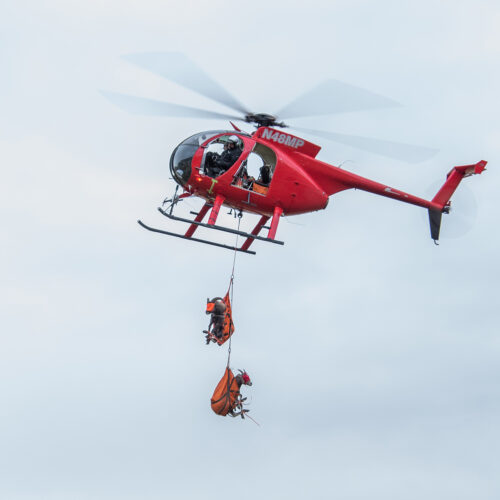
As Performing Artists Denounce Or Stay Allied With Putin, History Offers Some Lessons
Listen
Read
Russia reveres its high arts heritage of classical music and ballet. But Western European and American arts organizations are canceling appearances by performers who have financial or personal ties to Russian President Vladimir Putin, including some of Russia’s biggest stars. At the same time, some Russian and Russian-born artists have been speaking out against the invasion of Ukraine.
Each individual and institution is trying to figure out what to do at this juncture — essentially, creating their own foreign policies more or less on the fly.
One American cultural institution that has cut ties with musicians aligned with Putin is New York’s famed Metropolitan Opera. In a video message Sunday, the opera company’s general manager, Peter Gelb, made the Met’s stance clear.
“We can no longer engage with artists or institutions that support Putin or are supported by him — not until the invasion and killing has been stopped, order has been restored, and restitutions have been made,” he said.
Before a performance Monday night, the Met’s orchestra and chorus played and sang the Ukrainian national anthem.
On Thurssday, Gelb announced that Russian soprano Anna Netrebko –who is one of the Met’s biggest stars by far — will not perform at the New York opera house through at least this November, due to her failure to repudiate Putin. One of her replacements is a Ukrainian singer, Liudmyla Monastyrska.
The same afternoon, the prestigious Cliburn Competition — founded by pianist Van Cliburn, whose 1958 win at the first international Tchaikovsky Competition in Moscow became a highlight of Cold War diplomacy — said that it would allow 15 Russian and Russian-born pianists to participate in early-round auditions next week. (The final round of competition will be held in Fort Worth, Tex. in June.)
“The invasion of Ukraine by Russia is reprehensible and heartbreaking. The Cliburn stands firmly against and condemns this tyranny,” the competition said in a statement Thursday. It continued: “The Russian-born pianists who have applied for the Sixteenth Van Cliburn International Piano Competition are not officials of their government, nor is their participation in the Cliburn state-sponsored. Therefore, in the vision of our namesake and inspiration, Van Cliburn, and our mandate to support young artists—which is the very core of our mission—the Russian-born pianists will be allowed to audition for the Cliburn Competition.”
Kira Thurman is a professor of history and German studies at the University of Michigan. She’s also a musicologist. She says that these debates and decisions about the intersection of art and politics are nothing new — and that there is no way to unbind them.
“We have totally seen this before, at least throughout the entire 20th century,” she notes. “This is the dilemma artists always find themselves under is the artist’s social and political responsibility during times of war.”
Thurman points to World War II as one example. “Right after the war,” she says, “the allied forces, including the US, had a very strong response to artists who had supported Adolf Hitler. The U.S. military, working with the British and other forces, literally tried and gave out sentences to artists who had supported the Nazis or had performed and worked under the Nazi regime.”
Thurman points out that the Met itself also has institutional experience in making these decisions. “For example,” she says, “by the late 1930s, they decided that it was no longer acceptable to perform Richard Wagner’s The Meistersinger of Nuremberg.” (Meistersinger is one of Wagner’s most plainly anti-Semitic operas, and it was held in particularly high esteem by the Nazis.)
Because of that, Thurman continues, “It had become too much of a political liability for the Metto keep performing that opera. At the same time, though, what’s so interesting is after the war, we see a wide range of artists who had been associated with the Nazis come and perform on different American opera stages, as well as keep on performing throughout Europe as well.”
Conductor Semyon Bychkov was born in St. Petersburg and emigrated in 1975. He is currently music director and chief conductor of the Czech Philharmonic — and has spoken out against the invasion, as well as canceling a June appearance in Moscow. He says that he believes the current situation isn’t just a matter of art versus politics.
“It is about life and death,” Bychkov says firmly. “To remain silent in moments like that, for me, is not possible. I am an artist and that is what I do. But art is not separated from life. In fact, art reflects life. It expresses it, and music does it in the in the most extraordinary, eloquent way possible.”
He continues: “What we are having right now is a situation of unspeakable suffering. Whether I’m a musician or if I were a doctor, an engineer, a driver, it doesn’t really matter. I am a human being above all, and we live in the community of human beings. And when one sees this kind of suffering inflicted on people who have done nothing except just wanted to pursue their path of national independence, making their own choices, they’ve been hurting absolutely no one.
Bychkov, who is Jewish, adds: “We have seen this kind of things in history. This is not the first time — and every time we say it should never happen again, and it does. This is why I couldn’t remain silent.”
Bychkov says he understands why some Russian artists are in a very difficult position right now, however.
“One has to be aware that Russia today isn’t a free country. It is no more free than it was at the time, the very dark times, of Stalin,” he says. “It is a true dictatorship and people who live there, life is complicated. They have families. They have jobs. They have obligations imposed on them. I would never judge them because it’s really very hard. Each person has to find one’s own way.”
Bychkov places a caveat on that, however. “The only people that I object to are people who don’t think that what’s happening is so horrific and so uncalled for and so unacceptable. And they do support the action that the government has taken to invade Ukraine. They will find millions of reasons to say that it’s justified.”
Thurman cautions cautions that in these heated times, the impulse to stay away from certain performers allied with Putin means that all Russian artists — and audiences — might be scorned, because of Putin’s actions, even outside of official sanctions.
She adds: “At what point can we try to hold on to the idea that art can bring us together even in times of conflict, and that art can be the bridge, so to speak, that we can use to communicate with others across these terrible times and terrible moments? I think the answer always, to my mind, is to think flexibly and to really have a context behind the decision.”
For now, each individual and institution are left making their own choices.















